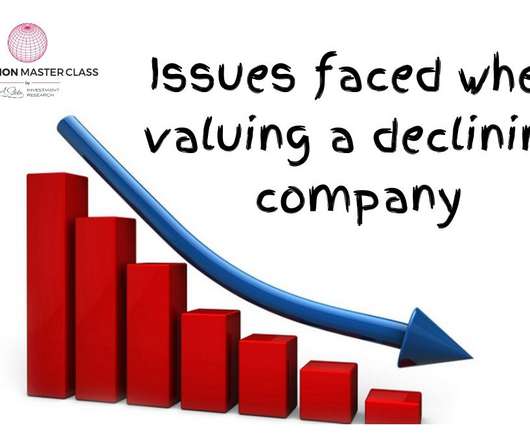What Is Stock Valuation?
Andrew Stolz
AUGUST 6, 2020
Absolute valuation is calculated through the discounted dividend model (DDM) method and discounted cash flow (DCF) method where you only focus on the stock and look at its dividends, cash flow, and growth. Often companies don’t pay dividends every quarter or every year hence making their payouts irregular. D0 = D1 ÷ (r – g).















Let's personalize your content